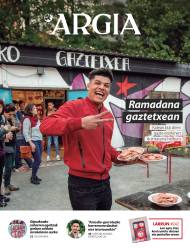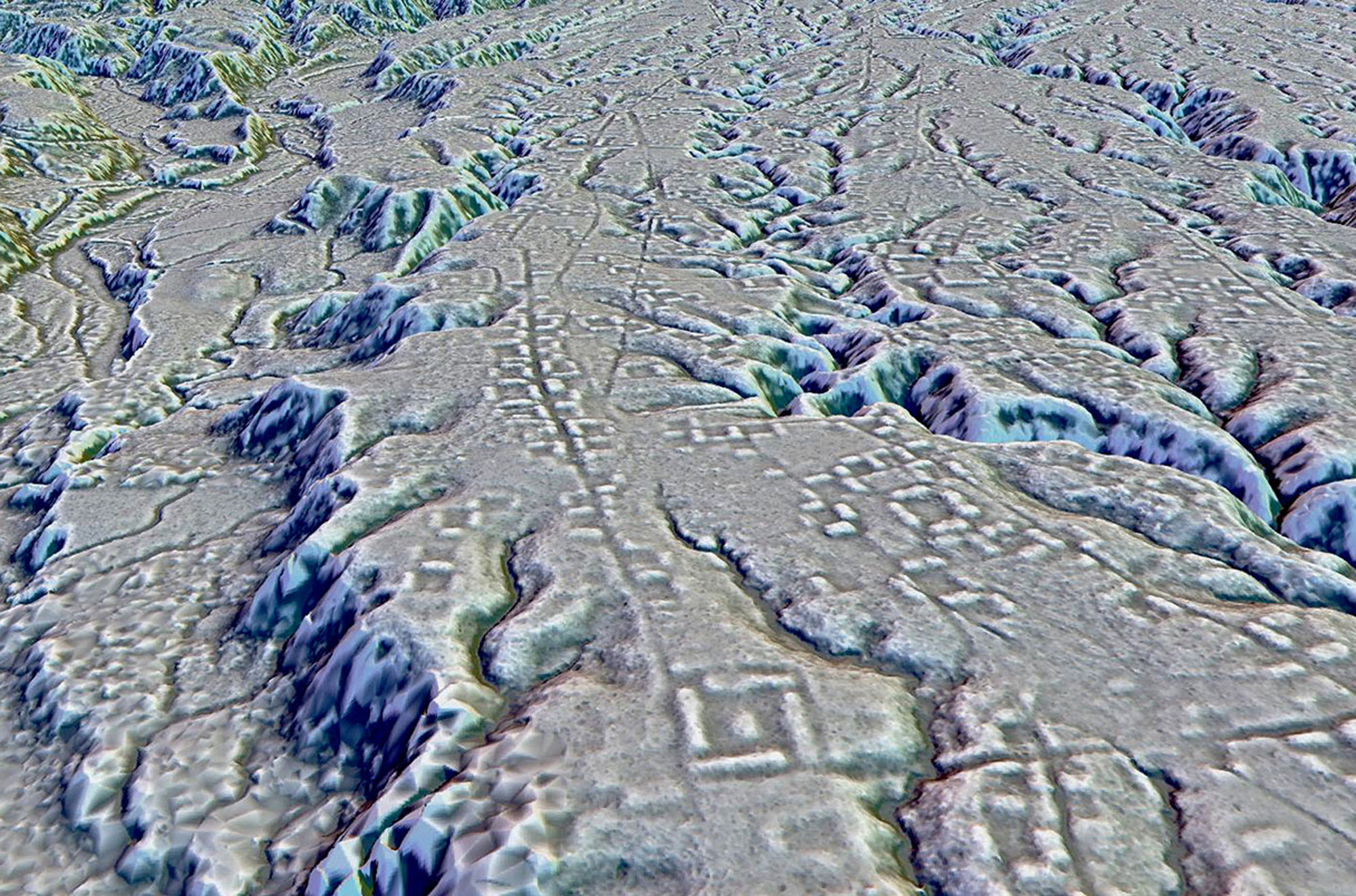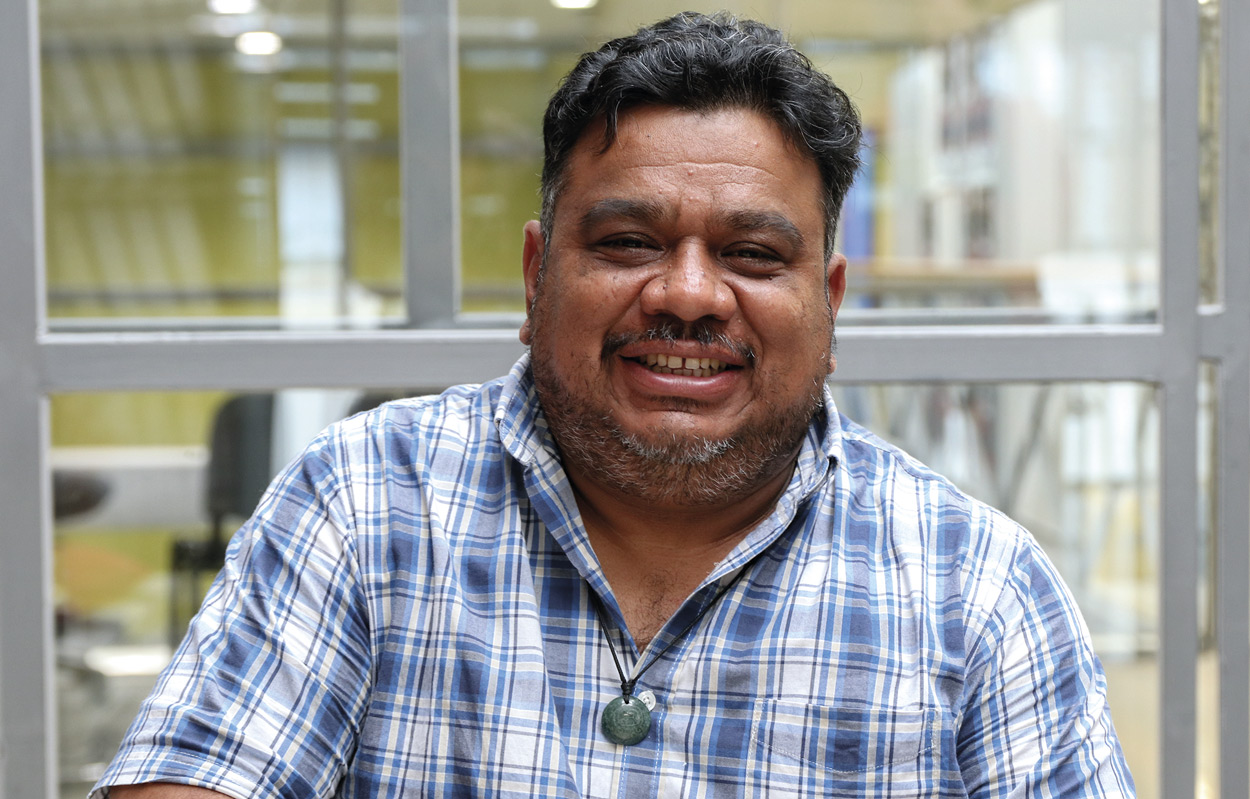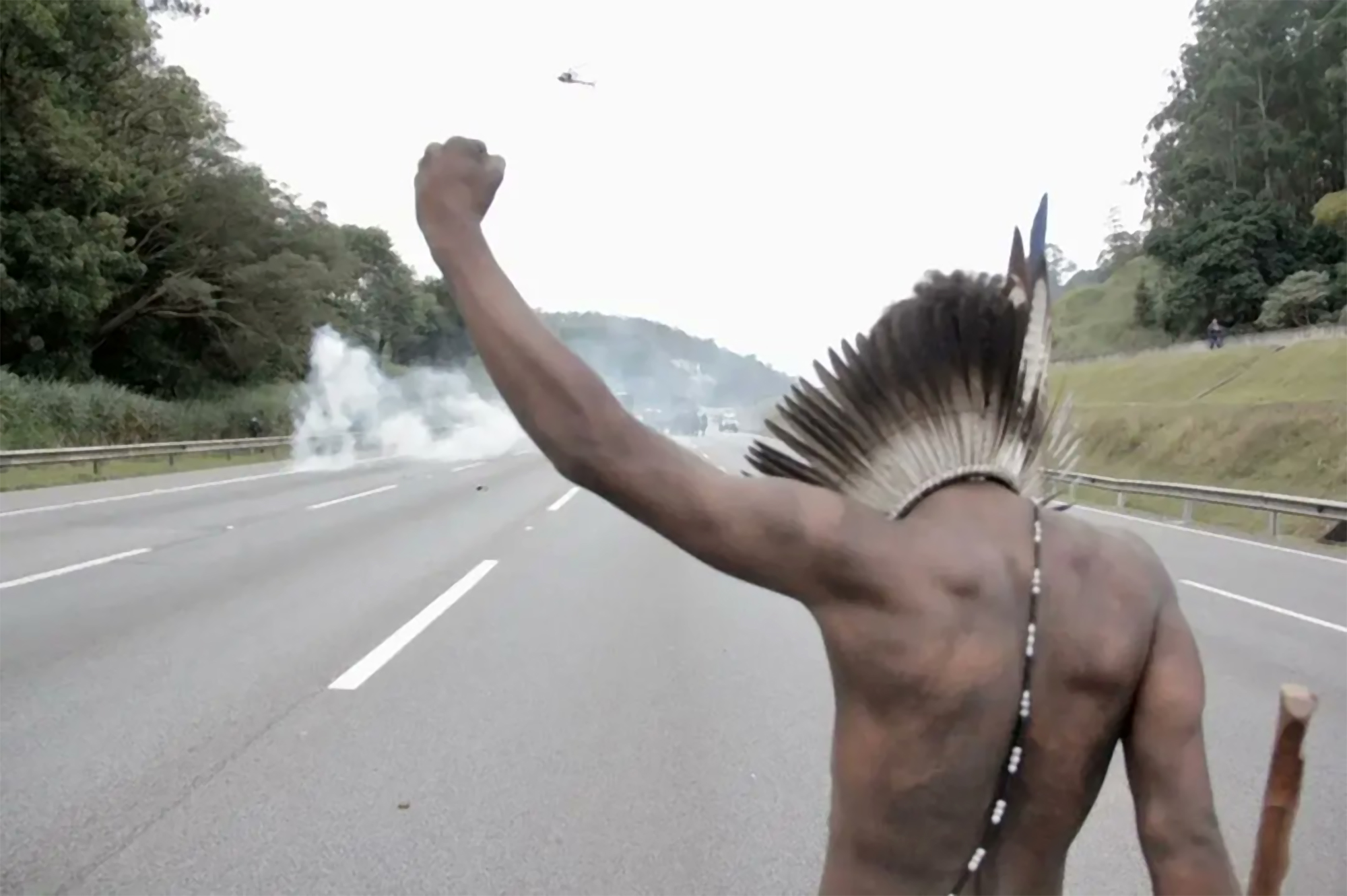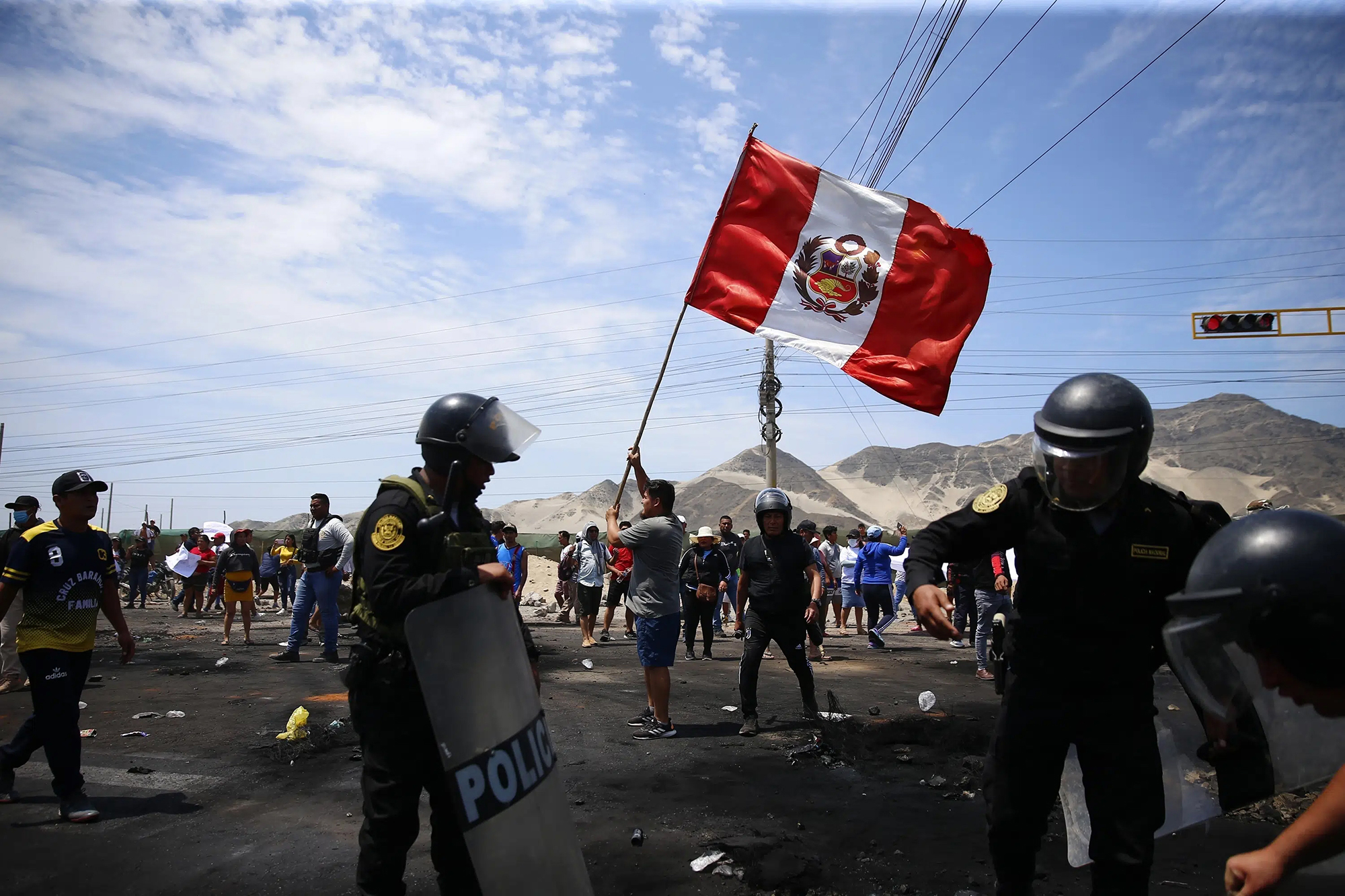"Indigenous people are not the problem, we are civilization"
- Daniel Pascual (Zacualpa, Guatemala, 1971) is the leader of the Committee of Peasant Unity (CUC), an agrarian and indigenous organization that groups peasants and indigenous people. She is also responsible for the Coordinadora y Punto de Encuentro Nacional Maia y coordinadora de Vía Campesina en Guatemala. In recent years it has stood out in the fight against transnational exploitation projects and has come to denounce the authoritarian evolution of the neoliberalist government.

The creation of the CUCs dates back to the 1960-1996 war. How did it come about?
In 1944, there was a democratic process in Guatemala. It was then attempted to introduce major changes in agriculture and the economy, as well as in society, in education, in health... These changes were not accepted by the United States and in 1954 the coup d ' état was declared in the Caribbean country. This inflamed many soldiers and citizens. In addition, in the early 1960s, mercenaries were being trained in Guatemala for the invasion of Cuba. As a result, several young officers jumped up and headed to the mountain. They created the FAR, the first guerrilla. The FAR was harshly persecuted, almost destroyed. Many members exiled themselves, but then returned and formed three new guerrilla groups. In the Catholic Church there was also a strong theology of liberation, cooperatives emerged... In this context, the CUC organization emerged. The 1976 earthquake gave the CUC a great deal of strength, speeding up the fight, as poverty and lack of protection for people became apparent.
How have the indigenous people allied themselves in the social and political struggles of the area?
Indigenous resistance has always been present in the vicinity of Guatemala and Maya of Mexico. An example of this are the uprising of Atanasio Tzul Maia in 1820 or the war of the castes of Yucatán in 1847. The desire for the liberation of indigenous people has always existed. The two struggles, social and indigenous, were found in the 1970s. By creating the guerrillas, many indigenous people joined it because of the discrimination and racism of the capitalist bourgeois Creole state towards the indigenous people and their monoculturalism destroyed the peoples. Large indigenous sectors accepted the use of weapons against that State as an extreme way of seeking justice, and in 1970 they issued several documents calling for the guerrillas to take into account indigenous claims. In the war they participated actively and the indigenous people began to stand out in the heads of the guerrilla groups. That was what led the guerrillas to reflect on this issue.
What thoughts were correct?
Unfortunately, several books appeared on the ‘ethno-national problem’, but as we have always said, indigenous people are not the problem, we are civilization, with all the elements that correspond to them. We have a conception of the natural world, a non-religious spirituality, which speaks of the connection of energies, between the human being and the universe, between the earth and the elements. In addition, it has been shown to be true, as it has been confirmed that the sun acts on the earth, that the earth is united to all beings.
How should the indigenous perspective be collected in the present Guatemala?
On the one hand, the indigenous authorities of ancestral origin, our laws, are not yet included, the existence of legal diversity is not recognized in Guatemala. On the other hand, we need to recognize the territories, not only in terms of production, but in them wisdom, customs, traditions, food, fabrics, relationships, arts have been rooted and flourished... They are used for tourism, but they do not accept the contribution of our culture to spirituality. The Mayans’ calendar is an example of this: they extol their accuracy to sell only to tourists. We want our languages to be recognised as languages. They are a great fortune for the richness of their dialects. There is a lot to do, because the state does not accept that wealth in itself. Now, in addition, land is allocated to corporations for the industrial production of minerals, oil or agriculture.
Here there have been great struggles to give the French and Spanish left to understand that they have been linked to the supposed monoculturalist universality that language brings a view of the world.
In our country it has also been a hard struggle, although the guerrillas were born as the vanguard of the left, since the indigenous element was not attractive to them. It has been a big mistake on the left, as the indigenous people are the majority in Guatemala, mostly women and young people. However, the Left has not reflected it sufficiently in its programmes or in the election of candidates in the general elections. Also in the agricultural movement, in very left-wing forums, we have had to say that beyond capitalism, beyond the class perspective of Marxism, we are peoples of origin, clinging to nature, that we propose solutions to climate change and to the civilizing crisis that this model of development has brought us. But the Left, in most cases, has acted with the rules of the right-wing bourgeois state in terms of development.
.jpg)
You have denounced that Guatemala is dependent on corporations.
Privatization of State services is taking place, States are being subordinated to companies. They know they're destroying the planet: the mines of the mountains, the rainforests, the hills ... Mixing water with chemicals is destroying the continent. With the ambitious mindset that seeks to accumulate goods, millions of people have not been taken into account and new genocides and famines are emerging. On the other hand, they know the laws that protect indigenous peoples, but to make looting legitimate, they turn a blind eye or ignore it.
Who are responsible for the destructive exploitation in Guatemala?
Companies like Perenco in France, Enel in Italy or Hydralia in Spain. But we don't know who's behind companies. For example, the president of Real Madrid, Florentino Pérez, is the president of the hydroelectric company ACS, which is destroying the forests. They say it's honest and reputable people, but in itself it's devastating.
What are the main struggles you have now in Guatemala?
Racism, exclusion -- these are structural problems that come from time to time. But with the free trade agreements with EE.UU, since 2005 the law on the liberalization of concessions has allowed land to be transferred to transnational ones without the permission of the peoples who inhabit them, for mining operations, for hydroelectric projects or for single-crop projects. This has led to violations of human rights, conflicts between communities, arrests, etc.
What has been the Government's position in the face of the protests that have taken place?
To stop the protests, he used the state of emergency and the state of siege, which has suspended constitutional rights in Catalonia. In Congress, new laws have been drafted to legalize human rights violations, to equate protests with terrorism. Now the defenders of the land are terrorists, we must put an end to them. With those laws in hand, entrepreneurs use lawyers to imprison indigenous leaders in order to curb protests.
Is it a vision of the internal enemy and anti-communism in the times of dictatorship?
Exactly. The promoters of the demonstrations are enemies of the State, who are accused of defamation, with the aim of stigmatizing. Simple people don't know much and believe them, and on television they talk over and over again about the threat of communism.
You yourself have had to suffer that stigmatization.
Yes, during the war we had to flee from the great killings and persecutions. Also later, for supporting communities in conflict in favour of occupied lands. I have received complaints: for a demonstration in the capital, for occupying land... In 2013, I suffered attacks and denounced them in the media. Since 2011, we have been under terrible persecution: Some members of the CUC have been killed and the fallacies have denounced us. These are groups that promote hatred, racism and xenophobia, such as the Ricardo Méndez Ruiz Anti-Terrorist Foundation.
of Kiché, born in a family of peasant Mayans. Since we were young, we entered popular social struggles. His father was one of the first foreigners to emigrate to the United States, and returned to the United States in 1978. At that time there were many struggles in Guatemala, the first to enter was the father, but from his hand we entered the whole family. I lost three brothers in the war and in times of peace the persecution is not over: I was told in the media and in 2013 I suffered two attacks.”
49 urte preso pasa ondoren, libre utzi dute Leonard Peltier AEBetako ekintzaile autoktonoa. Otsailaren 18 honetan heldu da bere senide eta lagunen artera 80 urte dituen preso-ohia.
Oinarrizko maia komunitateko U Yich Lu’um [Lurraren fruitu] organizazioko kide da, eta hizkuntza biziberritzea helburu duen Yúnyum erakundekoa. Bestalde, antropologoa da, hezkuntza prozesuen bideratzaile, eta emakumearen eskubideen aldeko aktibista eta militante... [+]
It is no coincidence that Columbus Day, that of the Civil Guard and the Virgen del Pilar coincided on that date. The three represent oppressive structures (statue, army and church). On the other hand, there is indigenous resistance and population that the Spanish State... [+]
When in the 16th century the Spanish conqueror Francisco de Orellana sailed the Amazon River, he said that there were big cities on both sides of the river. Few believed then, let alone in the following centuries, when no trace of what the conquest itself had destroyed was... [+]
On March 23, the prestigious French publisher Seuil launched a new literary section called “Indigenous Voices”. On the web Un livre dans ma valise (A book in my beacon), the director of the section Laurence Baulande explained that then the aim of the project is to publish... [+]
Pasa den abendutik Perun gertatzen ari diren istiluak, herrialdearen egoera politiko ahularekin lotu dituzte munduko hedabide nagusiek. Pedro Castillo presidente ezkertiarraren noraeza, haren kargugabetzea, Andeetako eskualdeetako herritarren altxamendua eta haien kontrako... [+]









